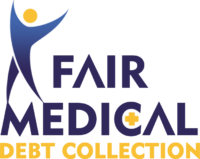
Medical Collection Services in Anchorage, Alaska
Medical collection services are a crucial aspect of maintaining a financially healthy medical practice. Finding the right agency for your medical debt recovery in Anchorage, Alaska, requires careful consideration and understanding. This guide is here to help you with that process.
How to Choose the Right Medical Collection Agency
Choosing the right medical collection agency involves several key factors:
- Reputation: Check reviews and ask for references.
- Success Rate: Inquire about the agency’s success rate in medical debt recovery.
- Compliance: Ensure the agency adheres to federal and state laws.
- Cost: Evaluate the fees and payment structure.
- Service: Analyze the agency’s approach to handling debtors, ensuring empathy and professionalism.

Finding a Medical Debt Collection Company
Finding a reliable medical collection agency in Anchorage, Alaska might seem challenging, but following these steps can simplify the process:
- Identify Your Needs: Assess your unpaid bills, recovery goals, and preferred methods to pinpoint exactly what you need from the agency. This clarity will guide your selection and collaboration.
- Shortlist Reputable Agencies: Research online, consider recommendations, and make a list of reputable agencies in Anchorage, Alaska that specialize in healthcare debt recovery services.
- Request Proposals: Contact the shortlisted agencies and request a detailed proposal that outlines their services, fees, and approach tailored to your needs.
- Evaluate Proposals: Review the proposals critically, considering factors such as success rates, compliance with local laws, fees, and their approach to patient relations.
- Schedule Meetings: Arrange face-to-face or virtual meetings with the top contenders to discuss your needs in depth. This will help you gauge their professionalism and compatibility with your practice.
- Negotiate Terms: Don’t hesitate to negotiate terms, including fees, reporting frequency, and recovery methods. A transparent discussion now will prevent misunderstandings later.
- Sign a Contract: Once satisfied with the terms, sign a formal contract. Ensure that it includes all essential details, such as the scope of services, fees, privacy policies, and termination conditions.
- Provide Necessary Information: Share relevant information about the debts, including patient details, amounts, and any previous collection attempts. This data will enable the agency to begin their work.
- Maintain Communication: Regular communication is vital. Establish a routine for updates and maintain an open line for any questions or concerns.
- Evaluate Performance: Periodically assess the agency’s performance. Are they meeting your expectations? Is their approach aligned with your values? Continuous evaluation ensures that the collaboration remains beneficial.
- Consider Patient Feedback: Keep an eye on how patients are reacting to the collection process. A reputable agency will maintain respectful communication, but it’s wise to monitor patient satisfaction.
- Know Your Exit Strategy: If things don’t work out, know how to terminate the collaboration. Understanding the termination conditions in the contract is essential.

Services Offered by Collection Agencies
Different agencies might provide varying services, such as:
- Pre-collection services
- Legal support
- Credit reporting
- Customized collection strategies
- Patient-friendly approach
Best Practices in Healthcare Debt Recovery
Implementing best practices in debt recovery can facilitate the process:
- Early intervention: Engage collection services at the right time.
- Transparency with patients: Maintain clear communication about billing.
- Offering payment plans: Facilitate patient compliance.
- Regular follow-ups: Maintain consistent communication with the collection agency.
Understanding the Legal Framework in Alaska
Compliance with federal and state laws is vital. Understand:
- Fair Debt Collection Practices Act (FDCPA)
- Health Insurance Portability and Accountability Act (HIPAA)
- State regulations specific to Alaska
Risks and Concerns
Be aware of potential risks:
- Unethical practices: Ensure your chosen agency adheres to ethical standards.
- Impact on patient relationships: Maintain a balance between debt recovery and patient care.
- Hidden costs: Beware of any hidden fees or charges.
How to Monitor and Evaluate Collection Performance
Effective monitoring and evaluation include:
- Regular reporting: Request periodic reports from the agency.
- Communication: Maintain an open line of communication.
- Reviewing success rates: Analyze the effectiveness of the agency periodically.
- Patient feedback: Consider the impact on patient relationships.

Benefits of Outsourcing Medical Debt Collection
Outsourcing to a professional collection agency provides:
Expertise in Debt Recovery
- Specialized Skills: Collection agencies bring to the table years of experience and specialized techniques tailored to debt recovery.
- Knowledge of Regulations: They know the laws and regulations surrounding debt collection, ensuring all actions are within legal bounds.
- Customized Strategies: Agencies typically design their approach based on the type and nature of the debt, leading to more effective collection.
Financial Stability and Growth
- Recovering Lost Revenue: Collaborating with an agency helps in recovering debts that otherwise might be written off, boosting your revenue.
- Cost-Effectiveness: The collection process managed by experts often turns out to be more cost-effective than handling it in-house.
- Cash Flow Improvement: Timely recovery of debts ensures a consistent cash flow, vital for any business’s financial stability and growth.
Legal Protection
- Adherence to Laws: With ever-changing laws governing debt collection, agencies keep themselves updated to avoid legal pitfalls.
- Legal Counsel: Many agencies have legal teams to guide the collection process, offering an extra layer of protection.
- Mitigating Legal Risks: By adhering to the laws, you minimize the risk of potential legal actions from debtors.
Preservation of Customer Relationships
- Professional Approach: Reputable agencies approach debtors professionally and respectfully, preserving customer relationships.
- Dispute Resolution: They often handle disputes more efficiently, maintaining goodwill even in complex situations.
- Empathetic Communication: Skilled agents communicate with empathy, making the process less stressful for debtors.
Focus on Core Business Activities
- Time-saving: Delegating debt collection frees your staff to focus on core activities, enhancing productivity.
- Resource Allocation: With collection efforts outsourced, you can allocate resources to growth-centric areas of your business.
Scalability and Flexibility
- Adaptable Solutions: Collection agencies provide scalable solutions that adapt to the size and nature of your business.
- Flexible Pricing Models: Many agencies offer different pricing models, providing flexibility to choose what suits your budget and requirements.
Enhanced Reporting and Transparency
- Regular Updates: Agencies usually provide regular reports on the status of debt recovery, keeping you informed.
- Data Analysis: Advanced agencies may offer insights through data analysis, helping you understand trends and areas for improvement.
- Transparent Practices: A reputable agency maintains transparency in its operations, building trust in the collaboration.
Use of Modern Technology
- Technological Tools: Agencies often employ the latest technology in tracking and communicating with debtors, improving efficiency.
- Secure Data Handling: Utilizing secure systems for data handling ensures the confidentiality of sensitive information.
Global Reach
- Cross-Border Collections: If your business operates internationally, collection agencies can handle debts across different jurisdictions.
- Understanding of Local Practices: They typically understand local customs and laws, aiding in smoother international collections.
Support in Credit Control Management
- Credit Policies Support: Some agencies assist in formulating credit policies, adding value to your overall credit management.
- Preventive Measures: Collaboration often leads to better preventive measures, minimizing future delinquencies.

What Type of Solution Do You Need?
Best Medical Collection Agencies in Anchorage, Alaska
Financial Collection Agency of Anchorage Inc
629 L St Ste 201, Anchorage, AK 99501

Mattson Investigations
721 Sesame St, Anchorage, AK 99503

Doctors’ Collection Service
605 Barrow St Ste 1, Anchorage, AK 99501

Finding and choosing a medical debt collection agency in Anchorage, Alaska requires careful consideration. By following the guidelines provided in this guide, you can select an agency that aligns with your practice’s values and needs, ensuring a successful debt recovery process.
FAQs
- What is the average cost of hiring a medical collection agency in Anchorage, Alaska?
The average cost can vary based on the services required and the complexity of the debt. Agencies might charge a flat fee, a percentage of the recovered debt, or a combination of both. It’s advisable to consult with individual agencies for specific pricing. - How can I ensure the collection agency complies with all legal requirements?
Ensure that the agency is well-versed in both federal laws like the FDCPA and HIPAA and state-specific regulations in Alaska. Request documentation and certifications, and consider consulting with legal professionals to confirm compliance. - What are the signs of a reliable medical collection agency?
A reliable agency will have a strong reputation, demonstrated success rate, transparent pricing, adherence to legal guidelines, and a respectful and empathetic approach to debtors. - Can I negotiate the terms with a medical collection agency?
Yes, many agencies allow for negotiation of terms. Clearly outline your requirements, expectations, and budget to find a mutually beneficial agreement. - How can I maintain a positive relationship with patients during the debt collection process?
Choose an agency known for its patient-friendly approach, communicate openly with patients about the process, and offer flexible payment options where possible. - What are the state-specific regulations for medical debt collection in Alaska?
State regulations may include specific licensing requirements, consumer protection laws, and limitations on fees. Consult with legal professionals or the state’s regulatory body for detailed information. - How long does the medical debt recovery process usually take?
The process can vary from weeks to several months, depending on the complexity of the debt, the debtor’s responsiveness, and the agency’s methodology. - Is it possible to recover old medical debts?
It depends on the statute of limitations in Alaska, which may limit the time frame for legal recovery. However, recovery might still be possible through negotiation and voluntary payments. - What are the potential risks of handling medical collections in-house?
In-house collections can be time-consuming, legally complex, and may impact patient relationships negatively. It often requires specialized knowledge and can divert resources from patient care. - How often should I communicate with the collection agency to ensure an effective process?
Regular communication is key. Weekly or bi-weekly updates, along with detailed monthly reports, can ensure you stay informed and maintain control over the process.
Zip Codes Served: 99501, 99502, 99503, 99504, 99505, 99506, 99507, 99508, 99513, 99515, 99516, 99517, 99518, 99540, 99567, 99577, 99587
